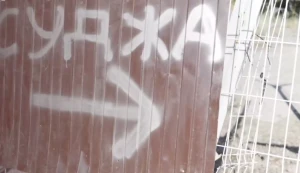
Why West views Russia’s collapse as "worst case scenario"
The West should think about creating special units (obviously under the auspices of the UN) that could take control of dozens of key nuclear facilities in Russia
The "collective West" was as afraid of a mercenary raid on Moscow as Putin himself; Europe and the United States considered a possible Kremlin coup to be among the "worst-case scenarios". As a result, the Wagner soldiers did not take the Kremlin, but successfully penetrated the minds of Western leaders and are reconfiguring attitudes towards the "brave, cunning and omnipotent president of the Russian Federation". Now, our partners are scratching their heads over (previously obvious) questions:
Can Russian army guarantee the safety of nuclear weapons?
“The answer is no. Shoigu's reindeer herders could not secure a single military facility on the Wagner's path - no airfields, no control centres, no other strategic facilities. If the mercenaries had travelled in the direction of the nuclear facility instead of Moscow, they would have most likely captured it.”
Russia's nuclear arsenal includes about 4,500 weapons. A slight loss of control over any of the munitions means the risk of their free movement: previously, NATO generals could only dream of this, but now it is a reality.
The rebellion is forcing the West to change its patterns of behaviour.
In the EU and the US, there was a fear of a "nuclear" Putin, "capable of doing anything". That is why the democratic world could not accept the fact that Ukraine would win this war and Russia would lose... Putin is ready to lose even to the leader of prisoners.
Now the West has to think about creating special units (obviously under the auspices of the UN) that could take control of dozens of key nuclear facilities in Russia if the Kremlin finally becomes impotent.
Will Russia collapse?
“The collapse of Putin's regime is seen by the West as a serious threat to Europe, and the coup has made it clear: dissatisfaction with the war is high and the country is divided”
Prigozhin delivered vivid pro-Ukrainian messages about the aggressive nature of Putin's campaign, the myths of Russian propaganda such as the “Ukrainians bombed Donbas” and the fake nature of the "goals of the special military operation". For the first time, a high-profile Russian media personality disavowed the main Kremlin narratives.
Read also: Wagner was able to make Putin regime work for it
The myth of Putin's invincibility has been shattered. The Kremlin leader swallowed all the insults and humiliation from Prigozhin, granting immunity from prosecution to a person whom he had called a criminal a few hours earlier. It was the only chance to retain power.
I assume that the Kremlin avoided the storming only thanks to the efforts of Patrushev and the West, which also went to great lengths to stop the rebels. I think the contacts between the Russian and US intelligence services on that Saturday afternoon will be revealed soon. CNN has already stated that Western partners asked Ukraine not to hit Russia during that march.
Should we continue to be afraid of an inadequate swindler?
The rebellion will force our Western partners to change their attitude towards Russia. Russia’s victory strategy is to force the West to abandon its support for Ukraine, "the all-powerful leader has calculated everything and firmly controls the country". It turns out that the leader is not omnipotent, and he miscalculated in many ways.
Prigozhin's "march" was unsuccessful as a military operation, but masterful in terms of trolling the Kremlin. The Ukrainian Armed Forces launched a counter-offensive, and the Wagner soldiers counter-trolled, which seriously injured their president.
We will soon find out whether our Western partners have managed to recover from this fear. In particular, we will hear about it at the NATO summit next month. I know for sure that the decision to invite Ukraine is still being considered, and I hope the news from Russia will play a role.
About the author. Orest Sohar, journalist, editor-in-chief of Obozrevatel
The editors do not always share the opinions expressed by the authors of the blogs.
- News












































